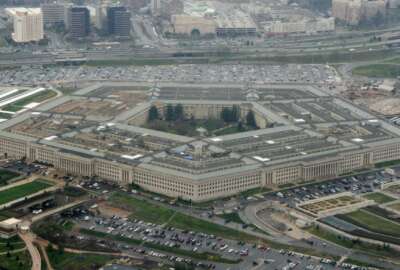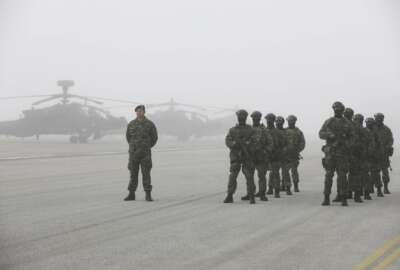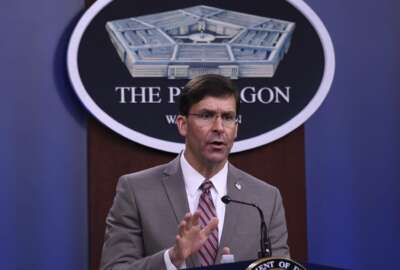
Pentagon’s latest stop-move order exempts recruiting, overseas deployments
Updated order adds exceptions for overseas deployments and recruiting, while extending ban on most other travel through June 30.
Defense Secretary Mark Esper told the military services on Monday that they must notify him before they take any steps to curtail recruiting as a result of the coronavirus pandemic.
The directive came as part of a new stop movement order that relaxed some of the Defense Department’s existing travel restrictions while extending the bulk of them through the end of June.
Recruiting activities were one of two of the major new exemptions Esper added in Monday’s order.
“Travel associated with uniformed personnel recruiting and accessions activities, to include accessions, basic training, advanced individual training, and follow-on travel to the first duty station [is exempt from the restrictions],” he wrote. “The military departments will notify me prior to reducing or suspending recruiting, accessions, basic training, or advanced individual training.”
The military services had already taken some steps to slow their accessions pipelines. The Navy and Air Force, for example, each stopped accepting new recruits at basic training for about a week in order to clean barracks and restructure their programs to accommodate social distancing. The Air Force said earlier this month it was only accepting about 460 new trainees each week, compared to the usual 600 to 800.
The Army, similarly, announced a two-week pause in sending recruits to basic training on April 6, while letting new soldiers who were already at boot camp continue their training. Officials said last Thursday that new recruits would begin arriving again this week after they had been screened at recruiting stations and gone through a two-week quarantine.
Monday’s travel order also adds exceptions for overseas deployments and redeployments — or “global force management activities,” as the memo terms them. 90,000 service members’ overseas travel had been disrupted since March 25, when the department began restricting international deployments and exercises.
Many of those restrictions are now lifted, although personnel on naval ships will need to be isolated for 14 days before they can move to another assignment. DoD has issued similar guidance for any other service members who have been living in “open-bay” settings or quarters with shared bathrooms.
“In partnership with host nations, the services and combatant commands will make decisions based on the circumstances of each deployment and the status of COVID-19’s spread,” Defense officials wrote in an update to a list of frequently asked questions Monday. “The intent is for the department to continue to move forces as required to meet operational needs and our alliance commitments.”
As of Monday, DoD reported 5,335 COVID-19 cases across its military and civilian workforce, including 1,332 who have recovered from the virus. Twenty-two have died, including two uniformed service members, 10 civilians, seven contractors and three military family members.
Copyright © 2025 Federal News Network. All rights reserved. This website is not intended for users located within the European Economic Area.
Jared Serbu is deputy editor of Federal News Network and reports on the Defense Department’s contracting, legislative, workforce and IT issues.
Follow @jserbuWFED
Related Stories






